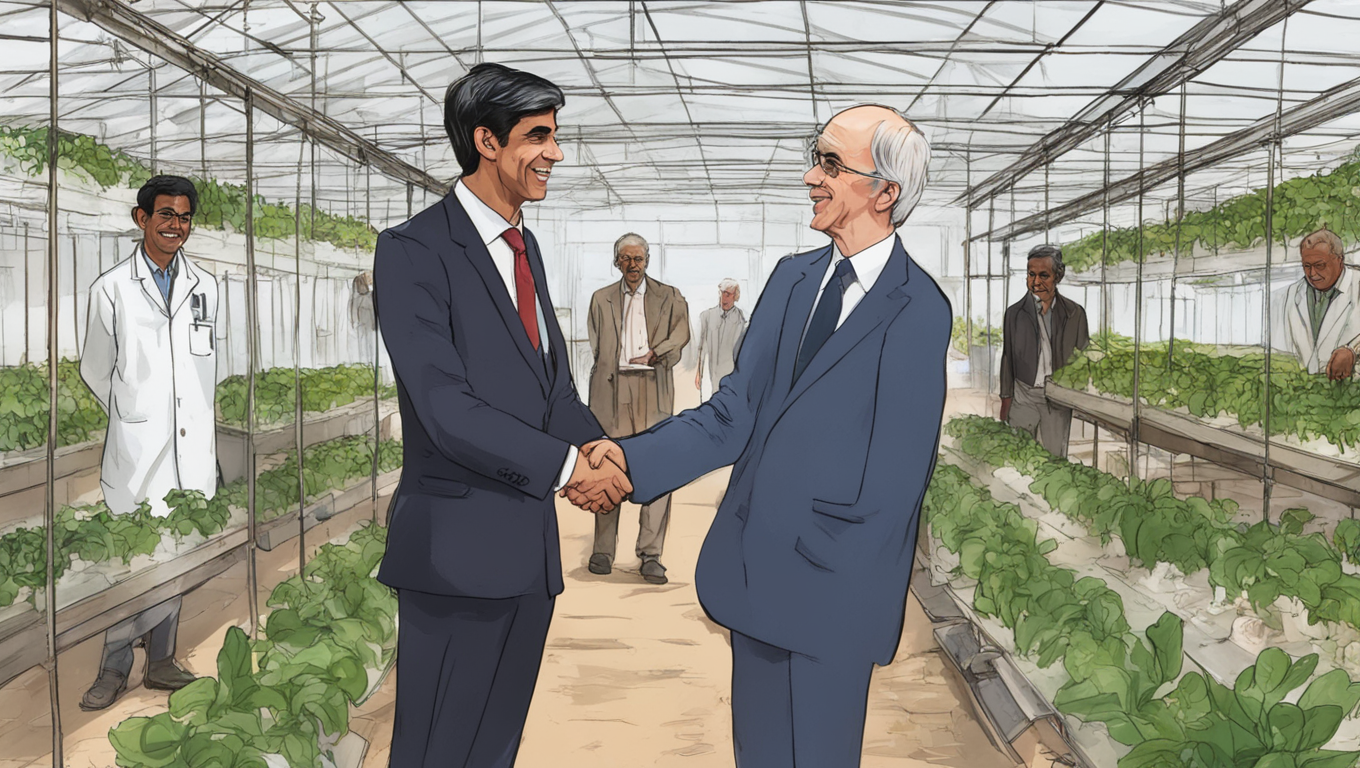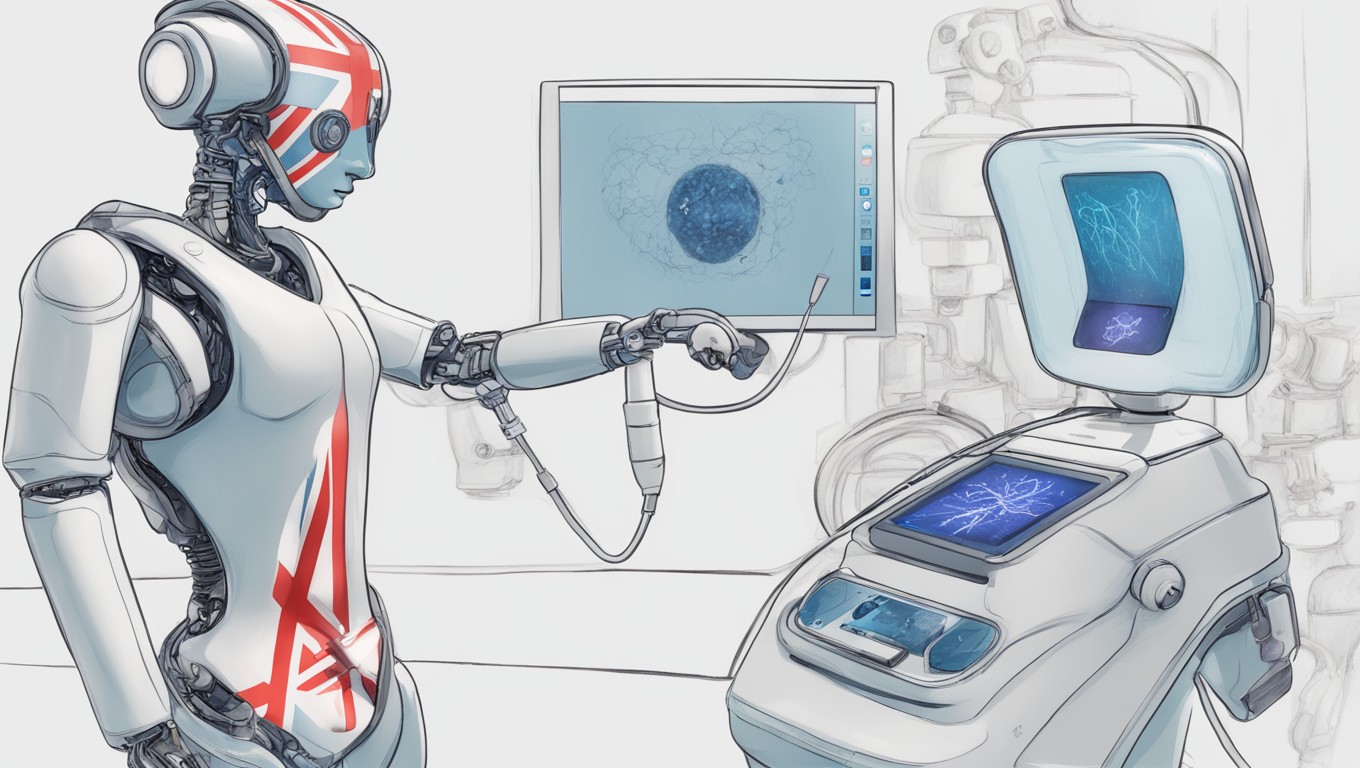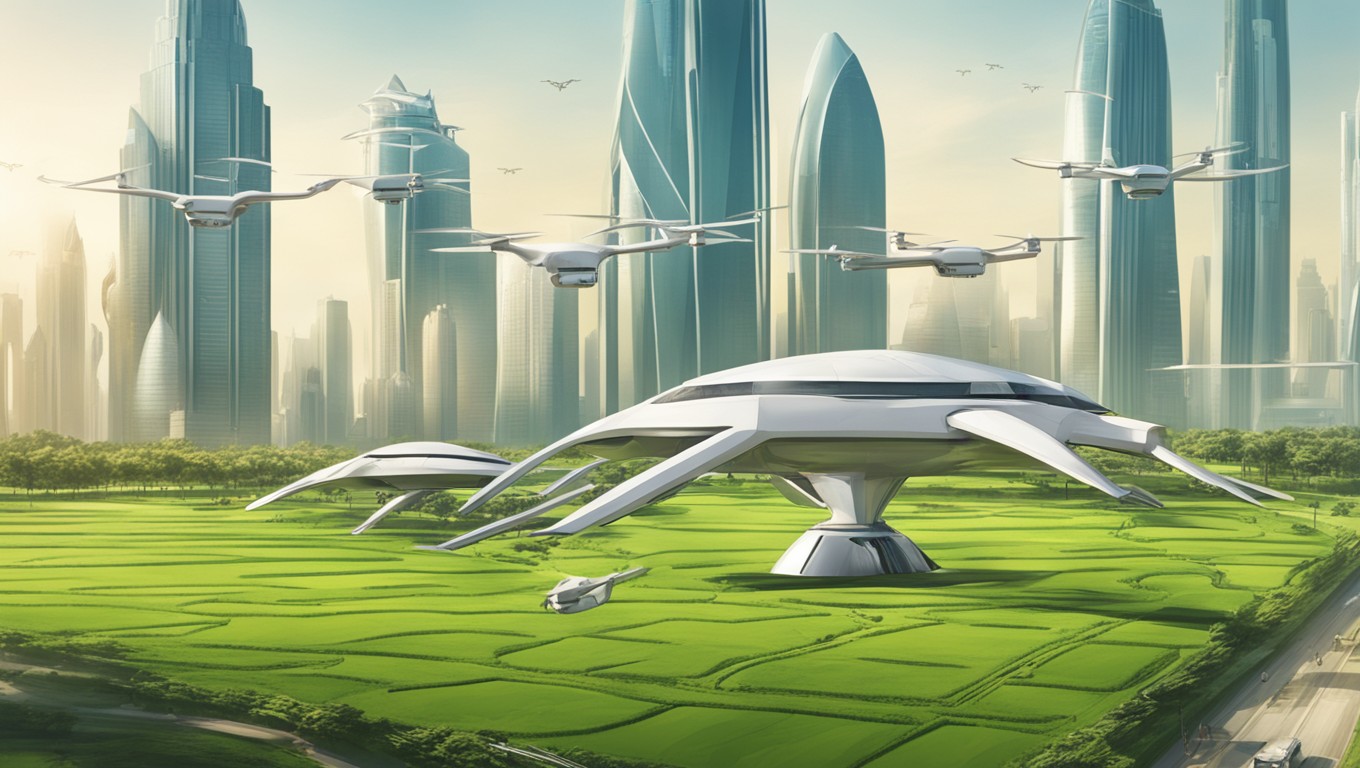British Prime Minister Rishi Sunak is taking a bold step towards tackling the global issue of malnutrition. At the Global Food Security Summit in London, Sunak announced that the UK is establishing a new science initiative aimed at developing crops that are more resilient to climate change. This initiative will focus on creating flood-tolerant rice, disease-resistant wheat, and other crops that can withstand the challenges presented by climate change.
Sunak emphasized the need for a “fundamental shift” in our approach to food security due to the worsening food crisis exacerbated by climate change. The Prime Minister highlighted the importance of science and technology in addressing this issue and called on world leaders to harness the power of artificial intelligence and other cutting-edge technologies to combat malnutrition on a global scale.
To achieve this, the UK will be setting up a “virtual science hub” that will connect international researchers working on developing more resilient crops. This hub will be a part of the CGIAR, a global research partnership. Sunak believes that by leveraging science and technology, we can bolster food supplies and make them more resilient to threats like conflict, drought, and floods.
The Global Food Security Summit was attended by ministers, diplomats, and philanthropists from approximately 20 countries. The event was co-hosted by Somalia and the United Arab Emirates, alongside the Children’s Investment Fund Foundation and the Bill and Melinda Gates Foundation.
However, the summit was not without its critics. Activists from Medical Aid for Palestinians protested outside the conference venue, calling for a ceasefire in the Israel-Hamas conflict to ensure urgent food and humanitarian aid reaches Gaza. Melanie Ward, the chief executive of Medical Aid for Palestinians, pointed out that while it is important to address food security globally, the dire situation in Gaza, where 2.2 million people are at risk of starvation, must not be overlooked.
Despite not calling for a ceasefire, Sunak urged Israel to agree to “urgent and substantive humanitarian pauses” to allow the delivery of food, fuel, and medicine to Gaza. He acknowledged the tragic and worsening situation on the ground and emphasized the need for immediate action.
As the UK takes the lead in promoting the use of science and technology to combat malnutrition, it is hoped that other countries will join this initiative and work towards long-term solutions to prevent future food crises. With climate change, conflict, and population growth posing significant challenges to food supplies, it is crucial that we prioritize research and innovation in agriculture to ensure a sustainable and secure food future. Sunak’s call for collaboration and the harnessing of AI and other cutting-edge technologies demonstrates a proactive and forward-thinking approach to solving this pressing issue.





Use the share button below if you liked it.